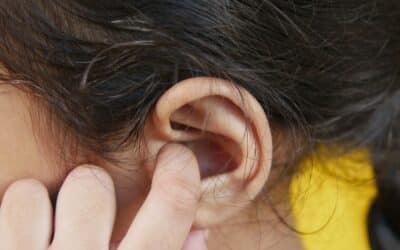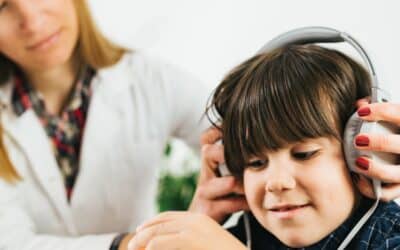As parents, we always want the best for our children. So, when we hear a raspy, strained voice, it’s only natural to be concerned. Hoarseness in children can be alarming but understanding its causes and prevention can go a long way in ensuring your child’s voice function and health. In this article, we will discuss what causes hoarseness in a child and what parents can do to prevent and help hoarseness.
What is Hoarseness?
Hoarseness refers to a change in voice quality. A hoarse voice might sound raspy, breathy, strained, or show changes in pitch or volume. It is the result of an issue with the vocal cords (or vocal folds), which are two bands of membranous tissue located in the throat.

Causes of Hoarseness in Children
Hoarseness can be caused by many factors or combinations of factors. Here are a few examples:
- Vocal Abuse or Misuse: Shouting, screaming, or excessive talking can strain the vocal cords leading to hoarseness.
- Respiratory Tract Infections: Conditions like colds, bronchitis, or laryngitis can lead to a hoarse voice.
- Allergies: Postnasal drip or swelling of the vocal cords due to allergies can cause hoarseness.
- Reflux: Acid reflux can irritate the throat and vocal cords resulting in hoarseness.
- Foreign Body: An object stuck in the throat can cause voice changes.
- Growths: Nodules, cysts, or tumors on the vocal cords can lead to hoarseness.
- Environmental Factors: Dry air, smoke, or chemicals can irritate the throat.
Promoting Good Vocal Hygiene
Vocal hygiene refers to positive habits used to support the health of our vocal cords/vocal folds. Here are ways to promote good vocal hygiene:
- Stay Hydrated: Encourage your child to drink plenty of water. Hydration helps keep the vocal cords lubricated.
- Limit Vocal Strain: Discourage screaming or yelling. Teach your child about using their “inside voice.”
- Humidify: Use a humidifier in your child’s room, especially in dry conditions.
- Avoid Irritants: Keep your child away from smoke and reduce spicy foods if they have reflux.
- Rest the Voice: If your child is showing signs of hoarseness, encourage a few hours of vocal rest.
When to Seek Care for Hoarseness
- Parent Concerns: If you have concerns about your child’s hoarse voice quality, contact their physician.
- Difficulty Breathing: Seek medical attention immediately if your child has breathing difficulties.
- Pain: If your child complains of throat pain or difficulty swallowing, see a doctor.
- Impacting Communication or self-esteem: If hoarseness is affecting your child’s communication or self-esteem, highly consider seeing a physician and a speech-language pathologist.
FAQs
- Is hoarseness common in children?
- Yes, due to their active lifestyles and frequent respiratory infections, children can experience hoarseness. If you have concerns, talk with your child’s pediatrician.
- Can whispering help with hoarseness?
- Ironically, whispering can strain the vocal cords more than speaking. Avoid whispering.
- Are vocal nodules dangerous?
- Vocal nodules are non-cancerous growths but can affect voice quality. They often arise from vocal abuse.
- How can I tell if my child’s hoarseness is serious?
- If you have concerns, consult with your child’s medical providers.
- Can hoarseness be prevented?
- While some causes, like infections, can’t be fully prevented, maintaining good vocal hygiene can minimize the risk.
- Do all children with hoarseness need speech therapy?
- No, but if hoarseness impacts their communication, self-esteem, laryngeal health, or quality of life, therapy can be beneficial.
Additional Resources
- Hoarseness (for Parents) – Nemours KidsHealth
- Diagnosing Hoarseness in Children | NYU Langone Health
- Hoarseness (Dysphonia): Healing Your Child’s Voice – HealthyChildren.org
- PEDIATRIC VOICE DISORDERS – Speech and Voice Therapy Center
- Voice Disorders (asha.org)
Summary/Conclusion
Hoarseness in children can arise from various causes, from colds, voice strain, vocal abuse, and underlying medical conditions. As parents, understanding these causes and promoting good vocal hygiene can play a significant role in ensuring your child’s vocal health and optimal voice quality. Always consult with medical professionals if you’re concerned about hoarseness in your child or any related symptoms.




0 Comments